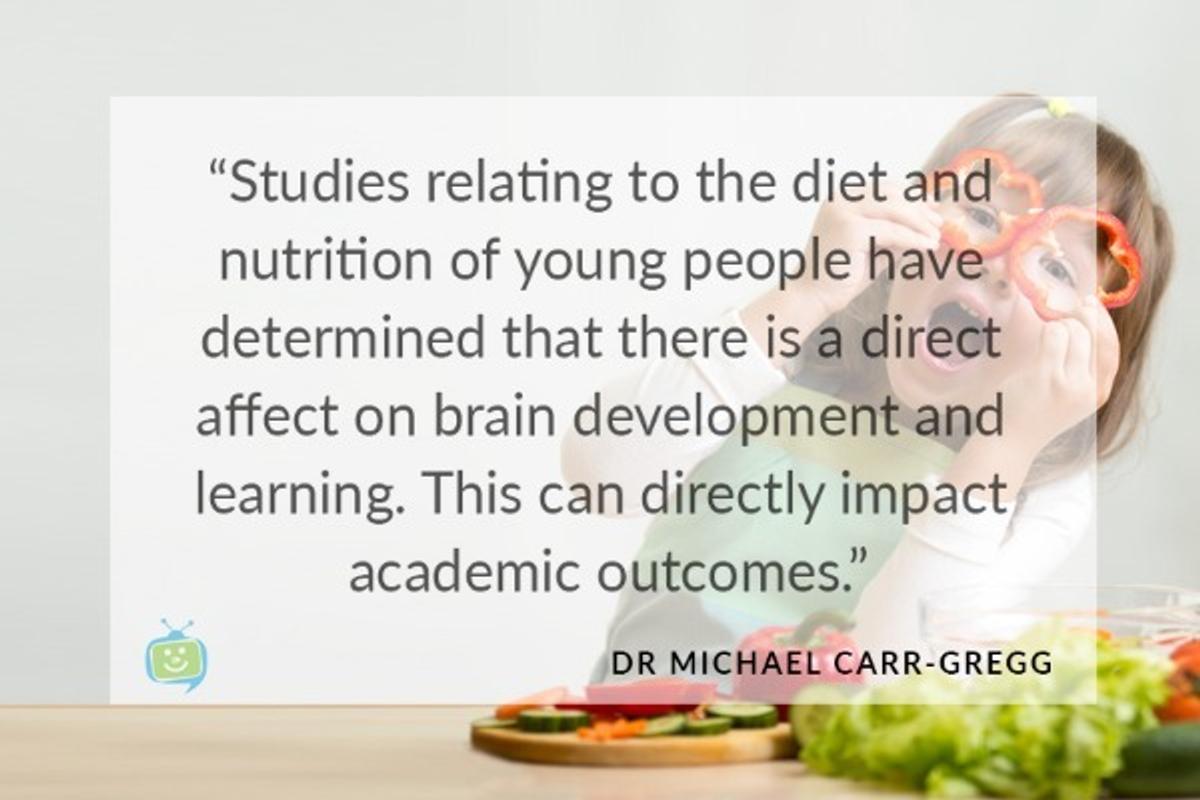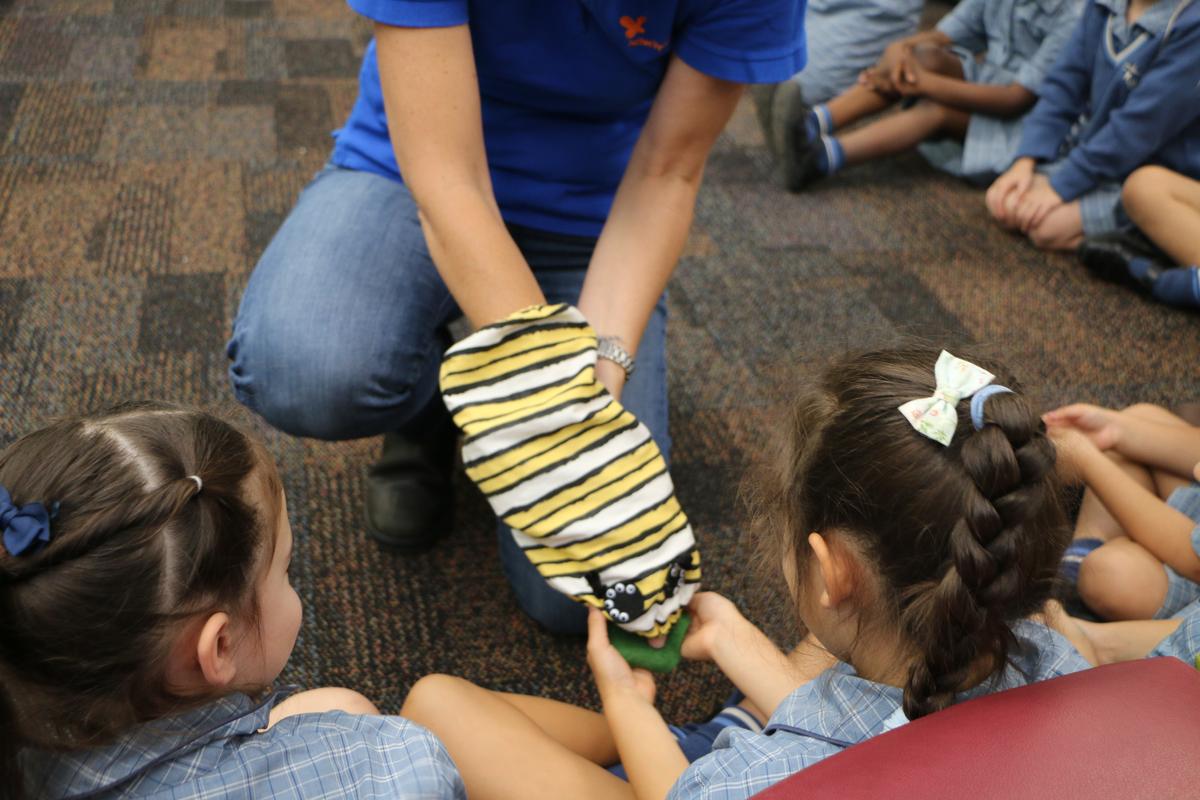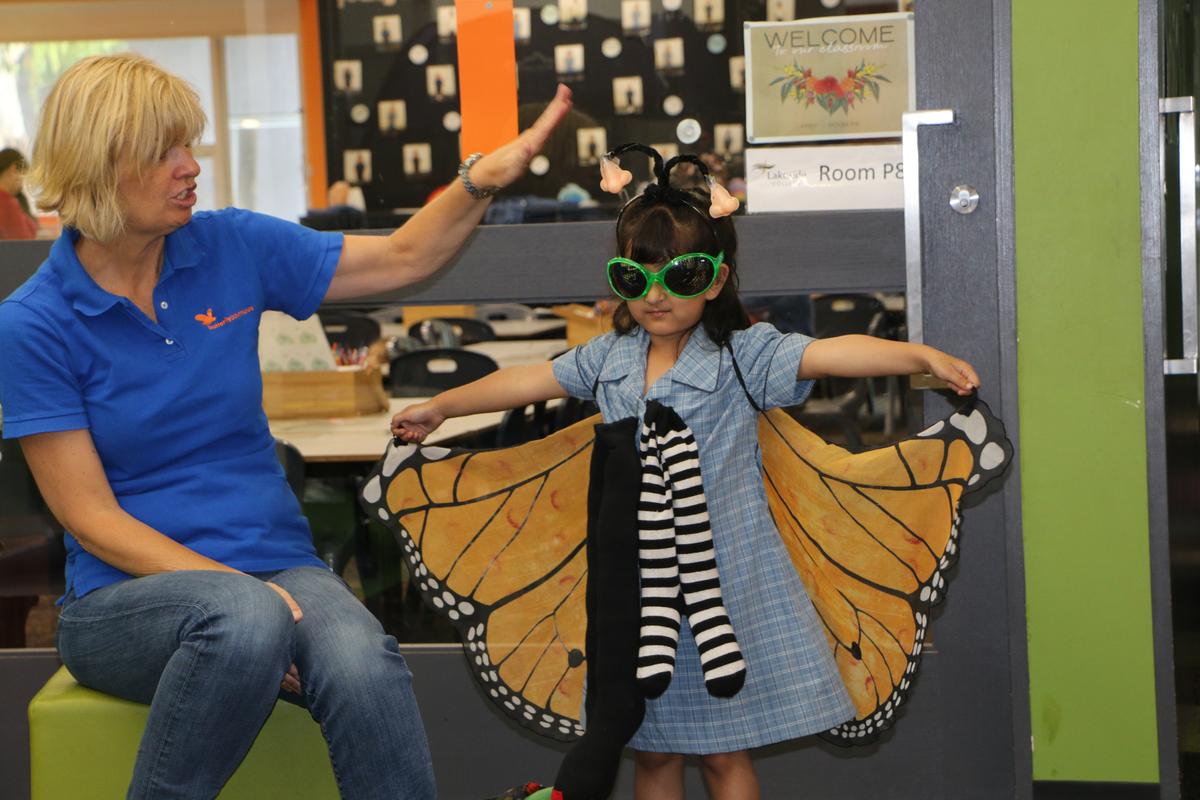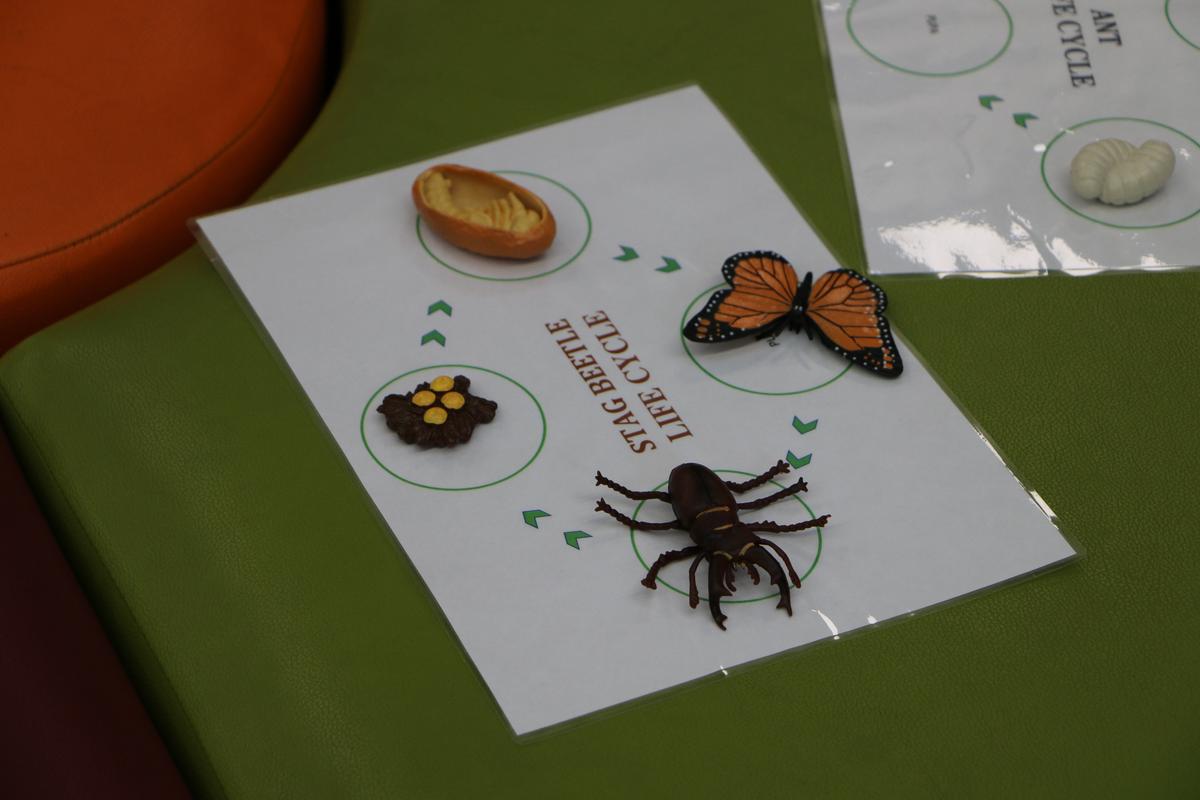Primary School

LENT
Lent is about improving our spiritual lives and seeking a closer relationship with God. We should observe Lent, because we want to accentuate the positive influence of the Holy Spirit in our lives and to eliminate the negative influence of sin.
As the year invites us to new learning, the Lenten season calls us to:
take time…to change…to renew…
Take time to think…It is the source of power.
Take time to play…It is the secret of perpetual youth. Take time to read…
It is the fountain of wisdom.
Take time to pray…It is the greatest power on earth.
Take time to love and be loved… It is a God-given privilege.
Take time to be friendly…is the road to happiness. Take time to laugh…
It is the music of the soul.
Take time to give…It is too short a day to be selfish. Take time to work…
It is the price of success.
Take time to do charity…It is the key to heaven.
Well Being
DIET & NUTRITION
We all know that diet and nutrition is vital to your child’s development and growth, but are you aware of the effects it has on your child’s brain development and how it can impact their academic achievement?
In this era of convenience, it is easy to reach for pre-packaged and processed foods to cope with busy schedules. However, these foods are usually packed full of sugar and salt which can have adverse health effects. Making a habit of reading food labels can help reduce the risks. It can also help to stabilize your child’s energy, improve their mood, maintain a healthy weight and improve their general wellbeing.
Encourage kids to help at home (every day without pay!)
Confident kids are competent kids. Past experience has taught them that they can be successful. The easiest (and most neglected way) to help develop competency is to give kids opportunities to help out at home. Don’t overburden them with jobs. Sensibly allocate chores according to their age, interests and study requirements.
Expect children and young people to help without being paid.
Provide pocket money, but avoid linking it to chores. Helping in exchange for money develops in children a notion of ‘What’s in it for me?’, which is a self-centred view of life.
However many parents tell me that they can’t get their kids to help unless they pay them. Those parents have made a rod for their own backs. It’s time for a change of tune. Don’t wait until they are old enough to help. Start now, regardless of age. Toddlers and teens and all ages in between should be expected to chip in and help.
The term ‘chore’ definitely has an image problem. Use the term ‘help’ as it is easier on the ear and really does indicate what you want from your kids.
Here are eight ideas to help you get your kids to help out at home without being paid:
1. Keep jobs real
Kids can sense it when parents give them jobs to keep them busy. Make sure the jobs you apportion make a real contribution to their own well-being.
2. Balance the personal chores with family jobs
Chores are generally divided into two areas. Jobs such as keeping a bedroom tidy benefits a child and jobs such as setting the table benefit the family. By doing this kids learn to contribute positively to family-life.
3. Place more difficult tasks on a roster
The children can refer to it when needed, which takes the load off you and removes the need to remind them. Rotate the unpleasant tasks frequently. And here’s the key to making rosters work – place yourself on the roster too! Kids are generally more willing to help when you as a parent are involved.
4. Use Grandma’s principle to make sure jobs are done
Grandma’s principle means you do the less pleasant tasks first. That is, make sure jobs are finished before mealtimes or before starting pleasant activities such as watching television.
5. Avoid doing jobs for children
When children get the message that no one will do their jobs for them they will be more likely to help out.
6. Show your appreciation for their help
Make a fuss when they help so they know that their contribution to the family is valued. If you do it often enough they may even show their appreciation for all you do for them!
7. Keep your standards high
Don’t accept half-hearted efforts or half-completed jobs. If you think your child is capable of putting the cat food back in the fridge and placing the spoon in the dishwasher then insist that he or she does just that, rather than leaving the cat food on the sink. A job properly done is valued in the world of work, which they will eventually enter.
8. Rebrand the term ‘chore’ as ‘help’
The term ‘chore’ definitely has an image problem. Use the term ‘help’ as it is easier on the ear and really does indicate what you want from your kids.
Reflection
Children Learn What They Live
If children live with criticism, they learn to condemn.
If children live with hostility, they learn to fight.
If children live with fear, they learn to be apprehensive.
If children live with pity, they learn to feel sorry for themselves.
If children live with ridicule, they learn to feel shy.
If children live with jealousy, they learn to feel envy.
If children live with shame, they learn to feel guilty.
If children live with encouragement, they learn confidence.
If children live with tolerance, they learn patience.
If children live with praise, they learn appreciation.
If children live with acceptance, they learn to love.
If children live with approval, they learn to like themselves.
If children live with recognition, they learn it is good to have a goal.
If children live with sharing, they learn generosity.
If children live with honesty, they learn truthfulness.
If children live with fairness, they learn justice.
If children live with kindness and consideration, they learn respect.
If children live with security, they learn to have faith in themselves and in those about them.
If children live with friendliness, they learn the world is a nice
place in which to live.
Mr Paul Mulqueen
Head of Primary School
Prep Butterfly Incursion
On the 2nd of March, the Prep students were lucky enough to participate in a Butterfly Incursion. In Prep we have been working on a text unit centered around The Very Hungry Caterpillar by Eric Carle.
As part of this unit we participate in the Butterfly Incursion so that we could learn more about butterflies and their lifecycles. We explored different stations to discover the difference between butterflies and moths, the anatomy of a butterfly and the lifecycle of different insects.
We also got to hold a butterfly in the butterfly tent as part of this incursion.
What fun!
Ms Jessica Rowland
Prep Homeroom Teacher
Primary District Swimming Carnival
The College is proud to share the results of our successful Primary swimmers who competed in the Officer District carnival on Wednesday the 22nd of February. Anhad G, Kaden K, Harper B, Maya B, Luca H, all placed in the top 5 in their respective events which placed the College 5th out of 9 schools.
Congratulations to Luca who placed first in his individual events and went on to compete at the Cardinia Division event on Wednesday the 8th of March where he placed 3rd in the Freestyle and 2nd in Breaststroke.
Well done to all of those involved!
Mr Ben Hillard
Physical Education Teacher
Harmony Day - 21st March 2022
Harmony Day is the celebration that recognises our diversity and brings together Australians from all different backgrounds. It’s about inclusiveness, respect and a sense of belonging.
To celebrate Harmony Day we ask all students for a gold coin donation to wear free dress with a splash of orange on Tuesday the 21st of March.
Students who do not wish to wear free dress to school on this day are welcome to wear their College Uniform. Students will be asked to dress appropriately. They are reminded that they must ensure:
- No mid-drift tops are to be worn
- Shoulders should be covered – no thin strapped tops
- No colour hair spray
Parents will be asked to collect students who come to school dressed inappropriately so that they can attend school in appropriate dress.









